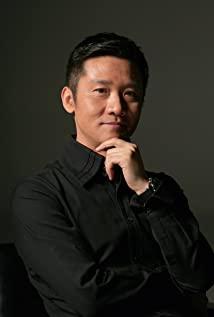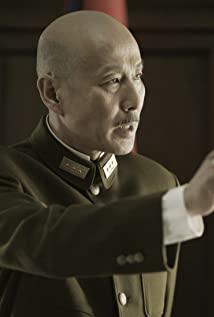The three films of Infernal Affairs have disrupted the main line of the story in terms of time. From the perspective of the time context of the entire story, the correct order is two, one, and three. Among them, the third part has many flashbacks.
In the first part, the role of Chen Yongren is very exciting. On the one hand, he is mentally troubled by his undercover identity, and on the other hand, he does not forget to remind himself that he is a policeman. This kind of self-identity is in the gap of real identity, which fills him up. tormented. But when I saw the second part, I was confused about this man, I didn't understand where his obsession with being a police officer came from.
Some people may say that it comes from his hatred of his illegitimate child status and his hatred of underworld fathers, but if that's the case, then his desire to become a policeman is somewhat selfish - revenge for the Ni family who abandoned their mother and son. But in the play, the expression of this part of the feelings is not obvious enough. In the second part, he threw himself to block bullets for his brother, which shows that he has feelings for his brother, although he has always been outside of the Ni family's family relationship.
Later, he learned that his boss was the pusher who killed his father, but he didn't have any resentment. Even after he killed his brother, Liu Yongren still didn't have any resentment, and he wanted to be a good undercover agent and a good policeman. He seems to be the embodiment of justice, the embodiment of justice without private emotions. Even later, he promised to continue to be Han Chen's horse boy, and Han Chen was the culprit who killed his whole family.
Chen Yongren really has no personal feelings at all. He wants to be a good person wholeheartedly, and the way is to become a legitimate policeman standing under the sun. In order to recognize the identity of the police, it can be achieved that the six relatives are not recognized, the love can be thrown away, and the human emotions and desires can be cut off. All his personal feelings gave way to the righteousness in his heart, but, for an illegitimate child who was not welcome since he was a child, where did his righteousness come from? In the movie, his belief has no established process, no entanglement, as if it was born.
I myself have doubts about this innate thing, which is equivalent to talent, but if it is a talent to say that a person has a righteous heart, I think this is a bit nonsense, because the so-called righteousness, I prefer to believe that this is It is a man-made rule. There is no righteousness in the world, but no one has done it, and there is a righteousness. This kind of righteousness is the spiritual example of human beings, and it is a height that cannot be reached by real people. It is a saint, that is, a distorted person, and is no longer a living, flesh-and-blood mortal.
Therefore, the role of Chen Yongren seems to be a spiritual symbol of social justice who came out of the underworld, but within the framework of this symbol, without himself in it, he is transcendent, absolutely spiritually correct, but also empty. I am instinctively repelled, even afraid, of such a role.
View more about Infernal Affairs III reviews











